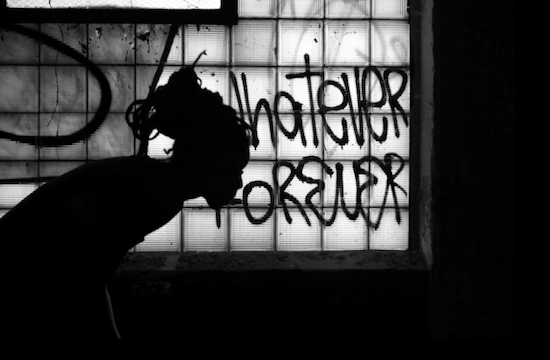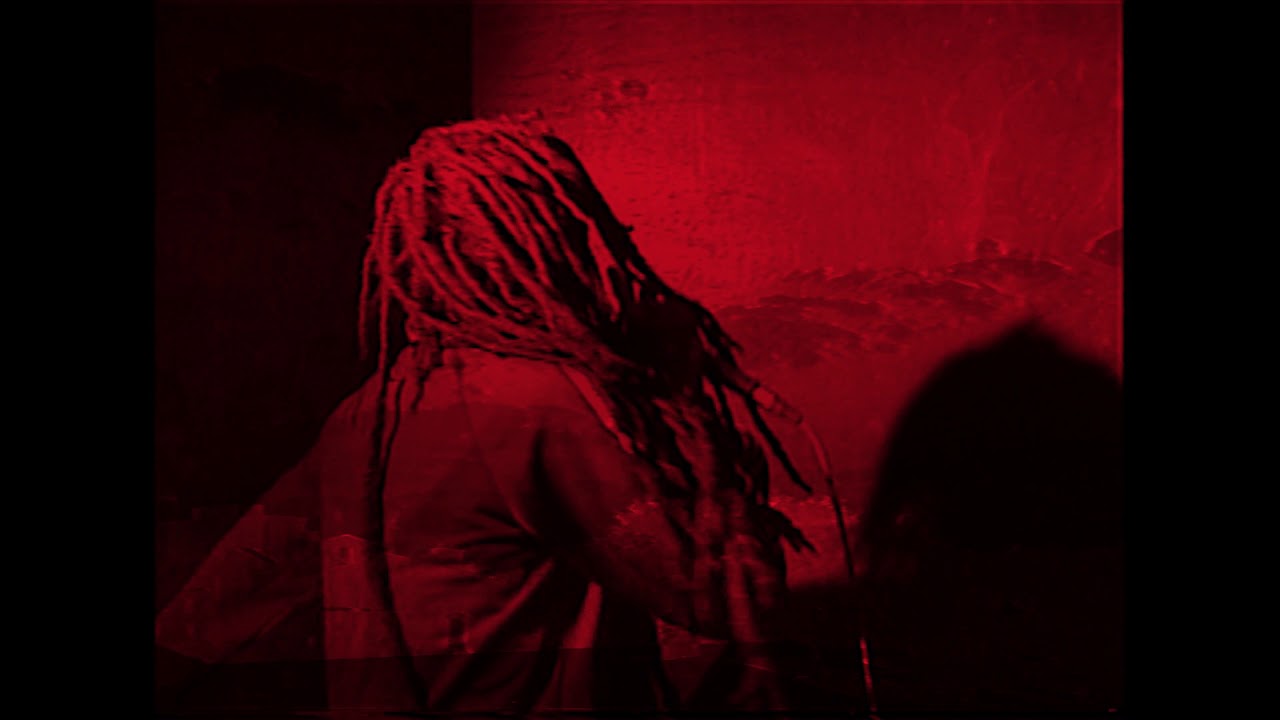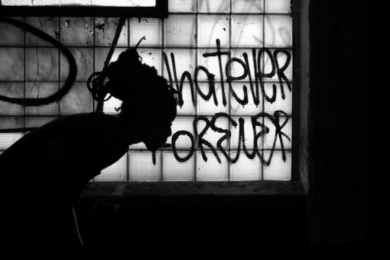Camae Ayewa, aka Moor Mother, tells me that though art is her life, she needs to remember that “resting is also an art”. The North Philadelphia experimental sound artist, poet and community activist is reflecting on her busy schedule, which includes a performance at the London Contemporary Music Festival this Saturday, 9 December, a European tour in January, and a show at New York’s The Kitchen in February that’s the result of Ayewa winning Laurie Anderson’s emerging artist award this year. A new album will be released next year, on the heels of 2016’s Fetish Bones, this year’s Motionless Present and the recent collaboration with Mental Jewelry Crime Waves.
As Moor Mother, Ayewa uses incisive spoken word to examine and shred apart racist, patriarchal America, and combines this with dark, often abrasive experiments with electronic sound that reveal her foundations in political hip hop and punk. Using field recordings (such as samples of the recording from Sandra Bland’s arrest), Ayewa uses archival documents to haunt the present, creating a overlapping of history that both remembers those who have come before and is an urgent call for action.
With her partner, writer and public interest attorney Rasheedah Phillips, Ayewa developed Black Quantum Futurism , an artists’ collective which understands space and time through an Afrofuturistic lens. They also founded a grassroots community social space in North Philadelphia called Community Futures Lab.
You often talk about your community in North Philadelphia as being an important driver behind the work you make. What are some of the current concerns?
Camae Ayewa: It’s the issues with inadequate housing and high queer youth homelessness. And music venues have been closed down. Everyone’s just trying to survive.
Are venues shutting down as a result of gentrification?
CA: Most definitely. It’s not like the city offers grants or anything for folks that want to open up a venue, especially a DIY venue. People are just trying to do it themselves with a small community and sometimes that’s not enough. And developers are so hungry to eat up anything that’s not making a lot of money.
What are your hopes for the Community Futures Lab?
CA: Really, to document what is happening in the neighbourhood. We have collected a lot of oral stories. We call them oral histories and oral futures – what would you like to see come into this neighbourhood? And bringing different advocates to do workshops and talks, skill sharing.
I read an interview where you’d said you’d initially encountered scepticism in the community about the space because artists are often seen as the harbingers of gentrification. How can artists make sure that they’re not part of that process?
CA: That is a hard question because there are so many different levels. Just because you’re an artist doesn’t mean your art is needed everywhere. Is what you’re doing about your work, or are you just trying to make work to fit into something for an opportunity? I think that’s the question a lot of artists have to ask themselves.
One of the things I was drawn to in your music is the way you use memory and history. What effect do you think the deliberate erasure of history through slavery and colonisation has on communities of colour?
CA: It’s oppressive on so many levels. How do we continue to honour ourselves, our traditions, our visions? Often we see ourselves as separate from something. Like, “Oh that happened so long ago.” Especially in America, most of us don’t know what part of Africa [our ancestors came from] or what languages our ancestors spoke. So it’s how not to feel defeated by this. A way of regaining power. In seeing your connection in all of this.
You realise the erasure is happening, and you could accept it. But it’s not acceptable. I don’t accept it. Yes, I have a say. Yes, I come from this power, this magic. I just feel like it’s all about educating yourself.
I have a library in my house with Rasheedah. It’s so important to read and learn about this stuff. We’re constantly researching and being inspired.
Did Black Quantum Futurism evolve through research and talk?
CA: Rasheedah had been doing a lot of work with The AfroFuturist Affair, and then her own love of knowledge – she loves quantum physics, philosophy – I mean we have books on everything. It just started coming out of that.
She was writing a book, a story called Recurrence Plot, time travel stories, and she had me do the soundscape for it. So that was the first project. It was really about breaking down this linear time mode, stories that circle around, and traumas, and things repeat and are looping.
In your work you’re laying bare horrific narratives of racism and patriarchal violence. How do you feel performing in front of various audiences and making yourself vulnerable?
CA: I guess I am. I mean, I haven’t really felt [vulnerable]. At one show my friend told me that some men were crying. And some men left that were like, “Fuck this”. At a set I did at Sonic City there were a lot of men in the audience, and I thought, What am I going to do? They’re going to expect me to do something really hardcore. So I was like, I’m just going to read a lot of poems about what women really go through. Stuff that speaks about the facts of patriarchy. And I did. That was my whole set. It just felt like that’s what I had to do.
But it seems like I’m going to the right places. I have had some mishaps as far as people getting drunk, stuff like that. But other events it seems like I’m supposed to be there.
Have you heard about the British writer Reni Eddo-Lodge’s recent book Why I’m No Longer Talking To White People About Race? Similarly, you have said you didn’t want to teach people beyond the songs you are performing.
CA: I feel the way I craft my songs and my poetry, it comes across how I want it to come across. I’m just reporting on what’s happening. I’m not in some debate. There’s no debate. This woman was raped. What debate is there to have for you? Women are domestically abused every nine seconds. So I get into conversations that I want to get in.
Some people may think I’m some kind of academic but I didn’t graduate from college. I’m self-taught in every way, there’s no other way for me but to do it this way. The practice was how to make it as simple as possible. I feel like these truths, these stories are enough.
I heard an interview with Lorde recently and she said she thought technology has democratised music-making. You use tech a lot, do you agree with this?
CA: You can get stuff off your phone, but even having a phone is a privilege and it’s about what kids in what neighbourhoods have access to do this. It’s still very hard to get instruments, that hasn’t changed. Yeah, there’s more access, but it’s still hard because you need the privilege and the funds for those machines.
Who are the poets who inspire you?
CA: I love Sonia Sanchez. To me her poetry is like time travel in its best form. She does a great job of weaving history, and the now, and love, and spirituality and just everything together. Every time I read her stuff, I am so inspired to do everything. Literally everything.
Moor Mother plays at the London Contemporary Music Festival this Saturday 9 December. More details and tickets here.




